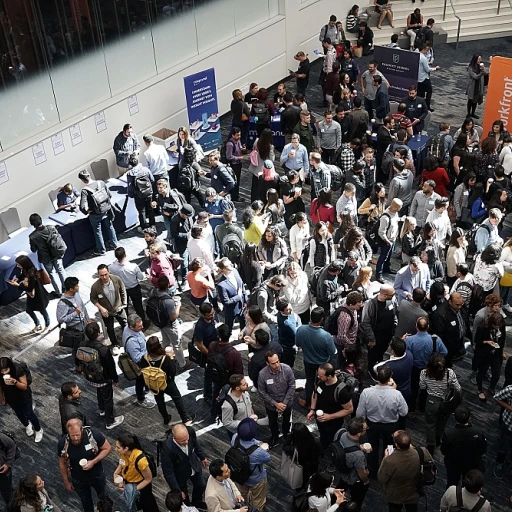
Understanding the Role of Mentoring in Software Engineering
Recognizing the Importance of Guidance in Software Development
Understanding the role of mentoring in software engineering is crucial for developing not only technical skills but also soft skills and an effective problem-solving approach. Mentoring serves as an essential component for software engineers, helping bridge the gap between the theoretical knowledge acquired in education and the practical demands of the workplace.- Role Clarification: A mentor helps clarify roles and work expectations for junior developers, enabling them to better integrate with team members and contribute efficiently to projects.
- Skill Enhancement: Through mentoring, budding software engineers can enhance their technical abilities and communication skills, crucial for navigating the complexities of modern software development.
- Tailored Guidance: Mentoring offers the opportunity for personalized feedback, allowing mentees to hone in on specific areas where they need improvement, be it in coding, project management, or team collaboration.
- Problem Solving: By learning from a senior software engineer, mentees gain exposure to real-time problem solving, observing firsthand the decision-making processes and strategies used by experienced professionals.
Common Mentoring Interview Questions for Software Engineers
Exploring Common Questions in Mentoring Interviews
During interviews for mentoring roles in software engineering, several key questions are frequently asked to assess various aspects of an individual's skills and potential fit as a mentor. Understanding these questions can help you prepare more effectively, ensuring that your responses accurately reflect your abilities and experience.Behavioral Questions to Gauge Experience
Behavioral interview questions are commonly used to understand how you've handled situations in the past. For instance, you might be asked to "describe a time when you helped a team member overcome a technical challenge." This question assesses your problem-solving and communication skills, as well as your ability to mentor effectively. When answering, provide a clear example that highlights your mentoring relationship with team members and your approach to helping them work through the challenge. An effective answer should include your role in the situation, the actions you took, and the outcome. This demonstrates your capability to mentor and foster development within a software engineering context.Assessing Technical Expertise
In mentoring interviews, your technical skills are equally crucial. Questions focusing on your technical experience ensure that you have the necessary knowledge to guide less experienced software engineers. For example, "How do you approach learning new software development technologies?" This question aims to understand your commitment to continual learning, a key trait in both mentors and engineers. Answer honestly by describing a specific example of how you have adopted new technologies in the past. Highlighting your ability to adapt and improve your skillset over time can position you as a knowledgeable resource in any mentoring relationship.Evaluating Soft Skills for Building Relationships
Beyond technical abilities, soft skills are vital in a mentoring role. Questions like "How do you build trust within your mentoring relationships?" target your interpersonal skills, which are essential for effective mentorship. Trust and rapport are the foundations upon which successful mentoring relationships are built. When crafting your answer, share real-time examples of how you've previously fostered strong communication and trust with both junior and senior software engineers. Discussing your experience in adjusting your mentoring style to match different team members’ needs further illustrates your dynamic and adaptable interpersonal capabilities. In preparing for a mentoring interview, familiarize yourself with these and similar questions. Demonstrating your technical and soft skills through well-articulated examples will help you stand out as a prospective mentor, ultimately contributing to the development of your team and the growth of the software engineering field.Crafting Effective Answers to Mentoring Questions
Developing Strong and Insightful Responses
When preparing for an interview focused on your mentoring abilities as a software engineer, it is critical to understand both the technical and interpersonal components. Your aim should be to showcase a deep understanding of how mentoring shapes the team and project outcomes. Here’s a structured approach to crafting effective answers during a mentoring interview.
Aligning Technical and Soft Skills
Mentoring goes beyond pure technical guidance. Demonstrating your blend of technical expertise and soft skills is key. For instance, when asked, "Can you describe a time when you mentored a junior engineer?" you should highlight not only the technical challenges you addressed but also your approach to enhancing the mentee's problem-solving skills. Consider covering aspects such as:
- How you identified the unique needs and learning styles of the mentee
- Your method of fostering a collaborative and open environment
- Examples of successful developmental outcomes for the mentee
Addressing Behavioral Interview Questions
Behavioral questions often reveal your ability to contribute effectively to a mentoring relationship. When asked about a challenge you faced in mentoring, illustrating your problem-solving ability can make a strong impression. For example, consider structuring your response around the Situation, Task, Action, and Result (STAR) method. This helps in giving a crisp yet detailed response. An example answer might involve a situation where you helped a team member in a time-sensitive project, focusing on your role in guiding them through a technical issue while keeping their development pace in mind.
Communicating Experience and Success
Your past experiences as a mentor can offer valuable insights to an engineering manager looking for effective team builders. Discuss specific examples, such as leading code reviews, which not only improve team coding standards but also build junior engineers' confidence. These examples help you highlight your long-term impact on the team's growth and software development chops. Remember, communication skills are crucial. Ensure your answer reflects your ability to articulate complex ideas clearly and foster an environment of trust and openness.
For those seeking effective strategies, utilizing resources for training materials can significantly enhance your development as both a mentee and a mentor.
The Mentor’s Perspective: What to Look for in Responses
From a Mentor's Standpoint: Analyzing Responses
In the realm of mentoring software engineers, the ability to comprehend and critically assess responses during interviews is of utmost importance. This process allows mentors to gauge the true potential and readiness of a software engineer to thrive in a mentoring relationship. A pivotal aspect to consider is the interviewee's capacity for problem solving. Behavioral questions often provide a window into this competency. For example, asking the candidate to "describe a time when they faced a significant challenge on a project" can reveal their approach to overcoming obstacles. Evaluate their answer for logical problem-solving steps and how they facilitated collaboration with team members. Critical to the mentor's assessment is understanding the depth of the candidate's technical skills versus soft skills. While technical prowess is essential, a well-rounded software engineer exhibits strong communication skills and the ability to work with diverse teams. It's beneficial to determine if the candidate has balanced these skills in their previous roles. Example questions that can illuminate these qualities include:- "How have you used your engineering skills to enhance a project's success?"
- "Can you provide an example of how you resolved a conflict within a team?"
Challenges and Solutions in Software Engineering Mentorship
Overcoming Common Obstacles in the Mentoring Journey
The journey of software engineering mentorship comes with its unique set of challenges, some of which can be daunting for both mentors and mentees. Understanding these obstacles and knowing how to address them effectively can transform a mentoring relationship into a powerful tool for skill and career development.- Addressing Skill Gaps: A prevalent issue in mentoring software engineers is the disparity in skills between the mentor and the mentee. It’s crucial for mentors to assess these gaps early on and develop a plan tailored to their mentee’s needs. Using examples of past projects and involving the mentee in real-time problem-solving can help bridge this gap effectively.
- Cultural and Communication Barriers: Differing communication styles and cultural backgrounds can create misunderstandings within the mentoring relationship. Encouraging open and continuous dialogue helps in overcoming these hurdles. Mentors should aim to cultivate an environment where engineers feel comfortable sharing their thoughts and asking questions.
- Time Constraints: Balancing work responsibilities with mentoring duties can be challenging, especially in the fast-paced world of software development. Prioritizing meetings and setting a regular schedule helps in efficiently managing time while ensuring productive mentoring sessions. Consider blocking dedicated time in calendars and focusing on concise yet meaningful interactions.
- Avoiding the One-Size-Fits-All Approach: Every engineer has unique talents and areas that need strengthening. Mentors must acknowledge this diversity and tailor their mentoring strategies to individual needs, rather than adopting a generic approach. Questions in interviews can reveal how a potential mentor assesses and adapts to these individual needs effectively.
- Navigating Technical and Behavioral Challenges: Effective mentors seamlessly blend technical training with soft skill development. Focusing solely on enhancing technical abilities can overlook the importance of soft skills like communication and teamwork. Mentors should aim to provide well-rounded guidance that prepares software engineers for varied roles within a team.
Building a Successful Mentoring Relationship
Fostering a Connection for Growth
Building a successful mentoring relationship in software engineering requires a thoughtful approach. As you progress from the initial interview questions to executing effective mentoring strategies, the focus should be on creating a collaborative environment tailored to growth.
Establish Mutual Goals
- Start the mentoring relationship by identifying shared goals. These goals provide a roadmap for both the mentor and mentee, facilitating productive interactions and development over time.
- Consider the specific skills and areas that the software engineer wishes to enhance. Align these aspirations with the mentor's expertise to maximize the learning experience.
Develop Effective Communication
- One of the foundational aspects of a successful mentoring relationship is open communication. Encourage regular meetings to discuss progress, challenges, and feedback.
- Communication skills, both verbal and non-verbal, play a crucial role. Listening actively and providing constructive feedback can significantly impact the software engineer’s growth.
Provide Real-time Problem Solving
- Engage in real-time problem-solving tasks to provide hands-on experience. This method enhances problem-solving abilities and ensures that the mentee gains practical insights into software engineering challenges.
- Through example answers during interviews and real-life scenarios, mentors can illuminate different approaches, assisting software engineers in developing a diverse set of skills.
Encourage Continuous Learning
- Promote an attitude of lifelong learning by inspiring software engineers to independently explore new technologies and development tools.
- Supporting their participation in technical workshops and team collaborations can enhance their engineering abilities and soft skills.
Build Trust and Support
- Trust is the backbone of any mentoring relationship. Encourage authenticity and dependability to build a foundation of trust between the mentor and software engineer.
- Mentors should foster a supportive environment, helping mentees navigate their career paths while empowering them to take charge of their professional development.
Incorporating these elements into your approach as a mentor can significantly impact your mentoring effectiveness. As highlighted in previous discussions, the challenges and solutions in mentorship call for flexibility and adaptability. Embracing these qualities ensures that the mentoring relationship is both rewarding and fruitful for all parties involved.






